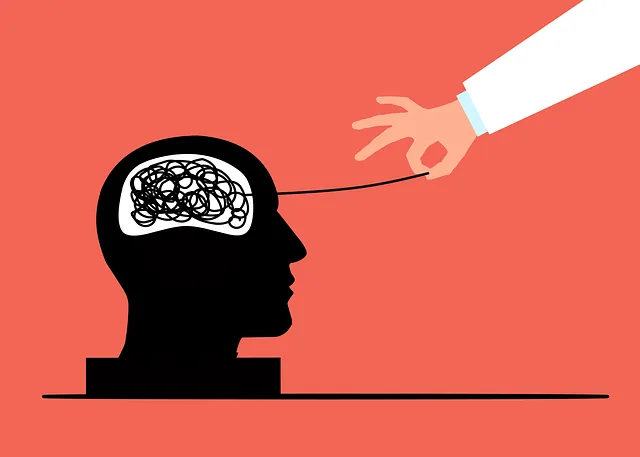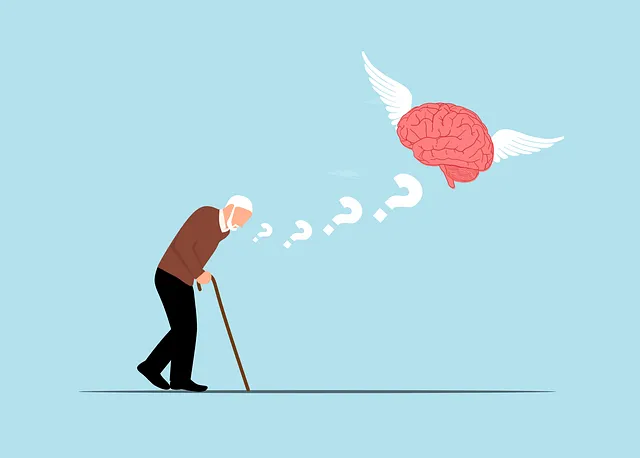Littleton Kaiser Permanente behavioral health services reviews underscore group facilitation as a potent tool for mental wellness, fostering community and enhancing therapeutic outcomes. Safe spaces, active listening, open dialogue, and adaptable strategies empower facilitators to teach coping skills, boost confidence, promote self-awareness, and improve overall well-being through diverse activities tailored to participants' needs.
In today’s digital era, mental wellness support groups play a pivotal role in fostering community and enhancing individual healing. This article explores effective group facilitation techniques, drawing insights from the expertise of Littleton Kaiser Permanente behavioral health services. From building trust to encouraging open dialogue, these strategies are designed to create safe spaces where members can express their experiences, build empathy, and navigate challenging dynamics. Discover how these practices can revolutionize mental wellness support within your community.
- Understanding Group Facilitation Role in Mental Wellness
- Building Trust: Techniques for Safe Space Creation
- Active Listening Skills to Enhance Peer Support
- Facilitating Open Dialogue: Encouraging Expression & Empathy
- Strategies for Managing Difficult Group Dynamics
Understanding Group Facilitation Role in Mental Wellness

In the realm of mental wellness, group facilitation plays a pivotal role in fostering community and enhancing therapeutic outcomes. As reviewed by Littleton Kaiser Permanente behavioral health services, effective facilitators create safe spaces where individuals can connect, share experiences, and support one another. This approach not only boosts confidence but also promotes self-awareness and coping strategies among participants. By facilitating open dialogue, managing group dynamics, and tailoring activities to diverse needs, mental health professionals can significantly impact the well-being of their clients.
The art of group facilitation involves careful navigation through various stages, from establishing ground rules to encouraging active participation. It demands a nuanced understanding of risk management planning, ensuring that every member feels secure while exploring sensitive topics. Through structured yet flexible guidance, facilitators facilitate meaningful interactions, enabling individuals to develop resilience and improve their mental wellness. This technique is particularly valuable in fostering social connections, which are essential for overall well-being, as highlighted by numerous mental health professionals and their positive experiences with group therapy sessions.
Building Trust: Techniques for Safe Space Creation

Creating a safe space is an essential foundation for facilitating mental wellness groups. This involves building trust among participants to encourage open and honest communication. One effective technique is establishing ground rules, ensuring everyone understands the confidentiality of shared experiences. Encouraging active listening and non-judgmental attitudes further strengthens this trust. Facilitators can model these behaviors, demonstrating empathy and respect for diverse perspectives.
At Littleton Kaiser Permanente behavioral health services reviews, self-awareness exercises are often employed to foster a sense of community. These exercises help participants recognize their emotions, triggers, and strengths, promoting personal growth. Additionally, incorporating burnout prevention strategies for healthcare providers can create a supportive environment. By prioritizing resilience building through structured activities and open discussions, facilitators enable group members to navigate challenges together, fostering a deeper sense of connection and well-being.
Active Listening Skills to Enhance Peer Support

In facilitating mental wellness groups, active listening is a powerful tool that significantly enhances peer support. It involves giving your full attention to speakers, understanding their emotions, and checking for clarity and confirmation. This skill not only builds rapport among group members but also encourages open and honest communication. By practicing active listening, facilitators at Littleton Kaiser Permanente behavioral health services reviews can create an environment where individuals feel heard, validated, and supported—crucial elements for fostering self-esteem improvement and positive mental wellness coaching programs development.
Peer support is a cornerstone of effective group therapy, and active listening plays a pivotal role in cultivating this dynamic. It enables members to share their experiences, challenges, and insights without fear of judgment, thereby facilitating the exchange of valuable knowledge and skills. This technique also helps identify unmet needs within the group, informing tailored public awareness campaigns development focused on mental wellness, ensuring that support remains relevant and impactful.
Facilitating Open Dialogue: Encouraging Expression & Empathy

Encouraging open dialogue is a cornerstone of effective mental wellness group facilitation. Creating a safe and non-judgmental space where individuals feel comfortable expressing their thoughts and emotions is paramount. Group facilitators at Littleton Kaiser Permanente behavioral health services, known for their exceptional reviews, employ techniques that foster honest communication. This involves active listening, reflecting participants’ sentiments back to them, and validating their experiences, thereby promoting empathy and understanding among group members.
By cultivating a culture of open dialogue, mental healthcare professionals can address diverse perspectives, including those shaped by cultural sensitivity in mental healthcare practice. Encouraging emotional regulation techniques through shared experiences allows group members to learn from one another, fostering a supportive environment that enhances mental wellness. This inclusive approach, recognized for its positive impact on patient care, is at the heart of successful group facilitation practices.
Strategies for Managing Difficult Group Dynamics

In facilitating mental wellness groups, navigating difficult dynamics is an art. As a professional, it’s crucial to understand that every group is unique, with members arriving from diverse backgrounds and experiences, especially when considering the range of services offered by Littleton Kaiser Permanente behavioral health services reviews. This calls for adaptable strategies. One effective approach is fostering open communication; encouraging participants to express their thoughts and feelings creates a safe space and helps identify potential conflicts early on.
Embracing emotional intelligence (EI) is another powerful technique. Facilitators with strong EI can recognize and manage their emotions, as well as understand and empathize with others’ sentiments. This skill set promotes positive interactions, facilitates conflict resolution, and enhances the overall group experience. Moreover, integrating self-care practices within group activities not only benefits facilitators but also encourages members to prioritize their mental wellness. By modeling healthy coping strategies, facilitators can inspire participants to adopt similar habits, creating a supportive environment conducive to growth and healing.
Group facilitation plays a pivotal role in enhancing mental wellness, as evidenced by the diverse techniques employed by professionals at Littleton Kaiser Permanente behavioral health services. Building trust through safe space creation and active listening skills not only foster peer support but also encourage open dialogue and empathy. Meanwhile, strategies for managing difficult group dynamics ensure productive sessions. By integrating these methods, facilitators create an inclusive environment that promotes healing and growth, as reviewed and attested to by many satisfied clients at Littleton Kaiser Permanente.






